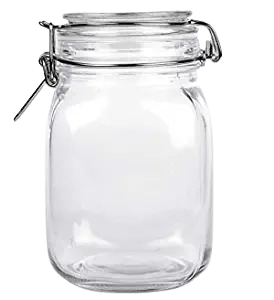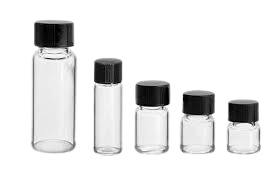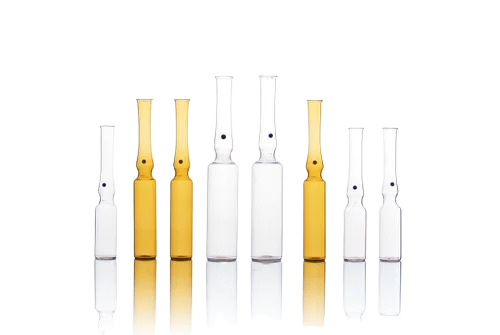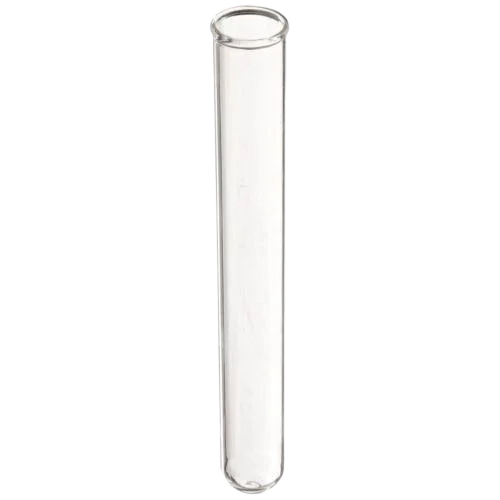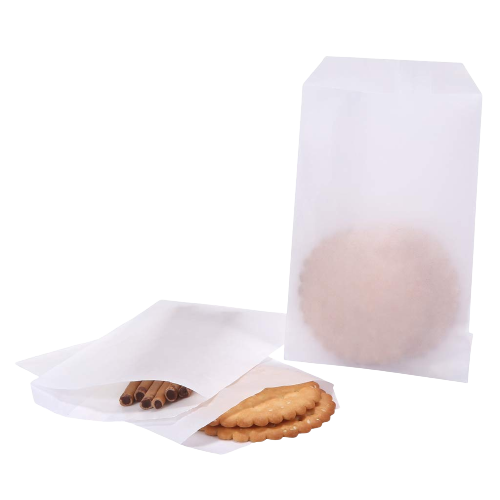Glass bottles
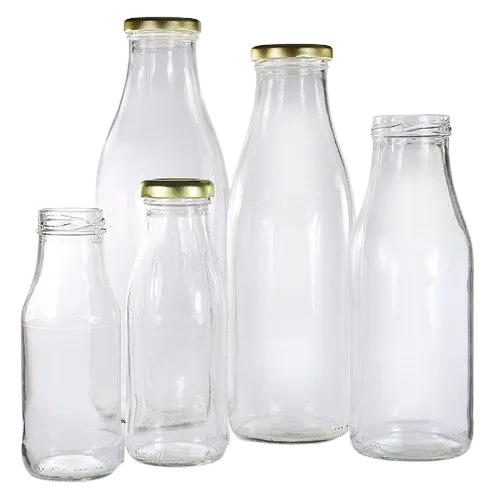
Glass bottles
Glass bottle packaging offers durability, transparency, and a premium look. It is recyclable, inert, and preserves product freshness. Ideal for beverages, sauces, and beauty products.
 Carbon Footprint: 356 gm per bottle*
Carbon Footprint: 356 gm per bottle*
 Time to decompose : only broken into pieces
Time to decompose : only broken into pieces
 Recyclability : end less times
Recyclability : end less times
 Price Range : $ 0.70*
Price Range : $ 0.70*
Key features
| Features | Description |
|---|---|
| Durability | Glass bottles packaging offers high durability, ensuring long-lasting protection for the contents. |
| Transparency | Glass bottles provide excellent clarity, allowing consumers to see the product inside. |
| Premium Look | Glass bottles have an inherent elegance and premium appearance, enhancing the perceived value of the product. |
| Recyclability | Glass bottles are highly recyclable, contributing to a circular economy and reducing environmental impact. |
| Inertness | Glass is chemically inert, ensuring that it does not interact with the contents, maintaining product integrity and taste. |
| Preservation | Glass bottles offer excellent preservation properties, protecting the contents from light, air, and moisture. |
| Versatility | Glass bottles can be designed in various shapes, sizes, and closures, suitable for a wide range of products. |
| Sustainability | Glass bottles are made from natural materials (sand, soda ash, and limestone) and can be endlessly recycled. |
| Brand Visibility | Glass bottles provide a clear canvas for branding, allowing product labels and logos to be prominently displayed. |
| Heat Resistance | Glass bottles have excellent heat resistance, making them suitable for hot-fill or heat-sterilized products. |
Specification
- Material : Glass
- Capacity : Available in various capacities, ranging from small to large sizes
- Shape : Glass bottles are produced in different shapes, such as round, square, cylindrical, or custom designs
- Closure Type : Options for closures include screw caps, cork stoppers, swing tops, or custom closures
- Neck Finish : Glass bottles have specific neck finishes to accommodate different types of closures
- Color : Glass bottles are available in clear, amber, or colored glass options
- Weight : The weight of glass bottles varies depending on the size and thickness of the glass
- Dimensions : Glass bottles have specific dimensions, including height, diameter, and neck length
- Surface Treatment : Options for surface treatments include embossing, etching, frosting, or custom branding
- Labeling Area : Glass bottles have designated areas for labels, allowing for clear product information and branding
- Special Features : Glass bottles may have special features like handles, pour spouts, or UV protection for specific purposes
Related Products
FAQ's
- Q1: What is glass bottle packaging?
- A1: Glass bottle packaging refers to the use of glass containers to store and package various products.
- Q2: Are glass bottles recyclable?
- A2: Yes, glass bottles are highly recyclable and can be melted down and reused to make new glass products.
- Q3: What products are commonly packaged in glass bottles?
- A3: Glass bottles are commonly used for packaging beverages, such as water, soda, wine, beer, and spirits. They are also used for sauces, oils, cosmetics, and pharmaceuticals.
- Q4: Is glass bottle packaging environmentally friendly?
- A4: Glass bottle packaging is considered environmentally friendly due to its recyclability and sustainability. It can be reused and recycled without loss of quality.
- Q5: Do glass bottles affect the taste of the contents?
- A5: No, glass bottles are inert and do not react chemically with the contents, preserving the taste, aroma, and quality of the packaged product.
- Q6: What are the advantages of using glass bottle packaging?
- A6: Glass bottle packaging offers durability, transparency, a premium look, excellent preservation properties, and is suitable for hot-fill or heat-sterilized products.
- Q7: Can glass bottles be customized?
- A7: Yes, glass bottles can be customized in terms of shape, size, color, closures, and surface treatments to meet specific branding and packaging requirements.
- Q8: Are glass bottles suitable for long-term storage?
- A8: Yes, glass bottles are ideal for long-term storage as they provide a protective barrier against light, air, and moisture, ensuring the product remains fresh and intact.
- Q9: Do glass bottles require special handling or packaging during transportation?
- A9: Glass bottles should be handled with care to prevent breakage. They are often packaged with protective materials, such as dividers or cartons, to ensure safe transportation.
- Q10: Can glass bottles be reused?
- A10: Yes, glass bottles can be reused multiple times, either for the same product or repurposed for other purposes, promoting sustainability and waste reduction.


